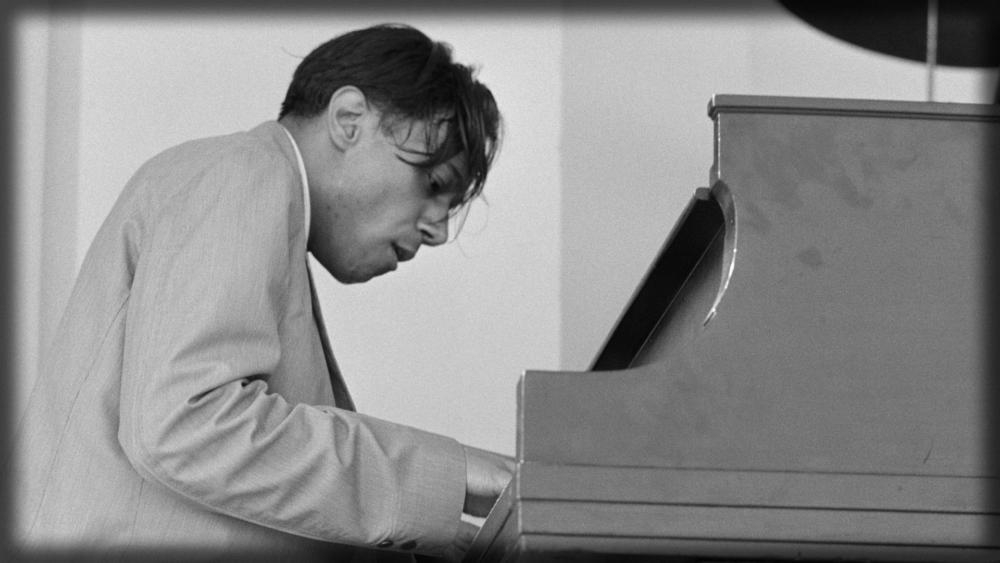As Horace Silver says in his introduction to this recently posted performance of “Song for My Father,” the rhythm is Brazilian, the melody Cape Verdean, and the tune is dedicated to his father. John Tavares Silva was born on the island of Maio in the Cape Verde Islands off the coast of West Africa, immigrated to Massachusetts as a young man, and later settled in Norwalk, Connecticut, where Horace was born 84 years ago today. Silver introduced “Song for My Father” in 1964 with trumpeter Carmell Jones and tenor saxophonist Joe Henderson. Here in 1968 it’s played by Bennie Maupin on tenor sax, Bill Hardman on trumpet, Johnny Williams on bass, and the drumming dynamo Billy Cobham.
In his autobiography, Let’s Get to the Nitty Gritty, Silver offers this glimpse into the music his father and uncles and their friends made around the house: “Dad played the violin, guitar and mandolin, strictly by ear. He loved the folk music of Cape Verde…Occasionally, they would give a dance party in our kitchen on a Saturday night. The women fried chicken and made potato salad. The men would get whiskey and beer and invite all their friends, Cape Verdeans and American blacks, to come and have a good time. They pushed the kitchen table into the corner of the room to make way for dancing, and Dad and his friends provided the music, playing and singing all the old Cape Verdean songs. [Here’s a present-day kitchen jam on the Cape Verdean coladeira. ]
“I was a little boy and could not stay up late to witness the festivities…I would go to sleep, but eventually the music would wake me up, and I’d get out of bed and go downstairs to the party and sit on the steps, looking and listening. Usually, some of the women would see me, come over and embrace me, and bring me food to eat.”
This wasn’t the only eavesdropping young Horace did that proved to be eventful. The youngster’s early ambition was to be a movie projectionist, but on a Sunday night in 1939, he and his father were at the amusement park in Rowayton, Conn., when Jimmie Lunceford’s Greyhound pulled in for a concert at the dance pavilion.
“I saw all these black musicians get off the bus with their instruments in hand. I asked Dad if we could stay and hear them play, but he said no because I had school the next day. I pleaded to stay and hear just one song. He consented…We could not go into the dance pavilion because blacks were not allowed there. The pavilion was an enclosed structure overlooking the ocean, but it had open slats so that people on the outside could look in and hear the music. There were white people and black people outside, looking in and listening.
“When I heard that band play, I said to myself, ‘That’s for me. I want to be a musician.’ They turned me on. I was eleven years old when I heard the Lunceford band, and I made a vow that very night that music would be my life. I immediately became a big Jimmie Lunceford fan…and would stand in front of the mirror in my living room with a big long stick in my right hand pretending that I was Lunceford leading his band. I was so wrapped up in Lunceford that I missed out on Duke Ellington and Count Basie and had to catch up with their work later on.
“Although I still love the movies, there’s nothing I love more than music. Since the moment I heard the Lunceford band, I have believed that God destined me to become a musician and composer, and I’m sure glad He did. Without music, my life would be empty and void of purpose. Music gives meaning to my life.”
Happy Birthday! Horace Ward Martin Silver. Thanks for making that plea to your father and for honoring him and the rest of us with your irresistible music. (Edit note: Horace Silver died on June 18, 2014, in New Rochelle, NY. Click here for my memorial tribute and further discussion of “Song for My Father.”)
